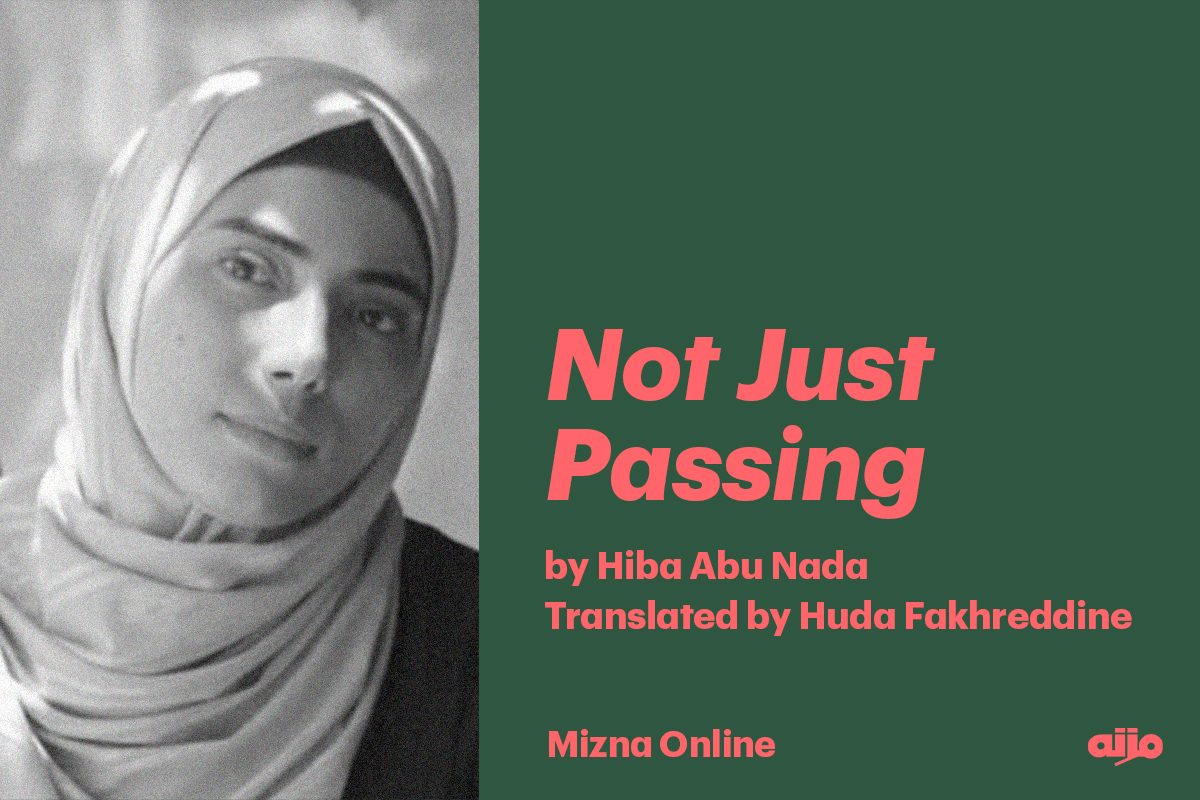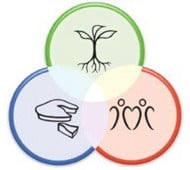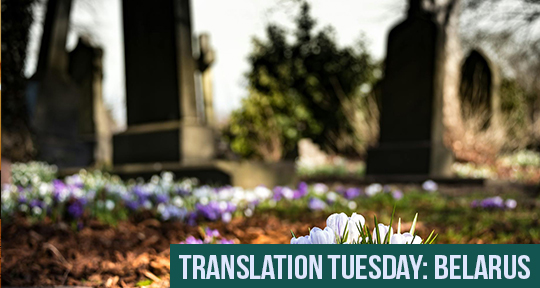testing
zu testzwecken
- 188 Posts
- 95 Comments
from the article:
The Magnets of the Abyss
I could fall!…I could fall!…
On the shores of this star I could take such a step that I don’t touch the ground…
I could fall!…I could fall!…
When, in the mystic dance I throw roses to the sea… almost never, almost never can the painful tide shelter my roses.
…The anguished waves flee unable to take me with them.
I slip on roses toward the sky…
I fall into the abyss. I long for it.
Ah, yes!…I can fall now.
I slip on roses…they magnetize me the peaceful stars that wish to shelter me. ………………………………… But I tear off my petals… unable to stop myself.
I know: my pained stem is left tangled in waves of oblivion’s waters.
That’s why, the intangible star awaits me still, and I slip like a cascade of roses by its ineffable lights.
But suffering earth feels the vanquished shore beneath my divine step…
I could fall!…I could fall!…
Ah, yes! The grief-stricken earth not even with its tragic wound can hold me.
I slip on roses…on roses…
from the article:
Daybreak
I shall rest my heavy fist upon the table And you shall, like shadows, return to silence. And night shall be within you, Around you, when my stare births lightning,
Pedestals shall fall When I sing my sovereign song When I raise my finger to the sun.
Your citadels were built upon my flesh; But if this were to bruise my skin, The agony could only stretch my will taut like the string Of a bow.
I am, still, the volcano that shall greet With beautiful and dangerous music The end of the heavy nightmare And the call of Relief.
Do you know?
It will be enough to move my body And rest my heavy fist upon the table For you, toward silence and night, To return
Like shadows.
 2·3 days ago
2·3 days agofrom the article:
Not Just Passing
Yesterday, a star said
to the little light in my heart,
We are not just transients
passing.
Do not die. Beneath this glow
some wanderers go on
walking.
You were first created out of love,
so carry nothing but love
to those who are trembling.
One day, all gardens sprouted
from our names, from what remained
of hearts yearning.
And since it came of age, this ancient language
has taught us how to heal others
with our longing,
how to be a heavenly scent
to relax their tightening lungs: a welcome sigh,
a gasp of oxygen.
Softly, we pass over wounds,
like purposeful gauze, a hint of relief,
an aspirin.
O little light in me, don’t die,
even if all the galaxies of the world
close in.
O little light in me, say:
Enter my heart in peace.
All of you, come in!
from the article:
A Blessing [From a 1902 text]
Before you, I offer my copal —it is for you. Offer it to the father —it is for you, raise it up to the father.
I shall fulfill, once more, my offering of pozol for you —it is for you, offer it to the father. Before you I lay my gift, once more, for your joy. I offer it so that my gift does not become spoiled, so it remains whole, remains worthy —that is at the head—of my gift, for you.
May my gift not break! May my gift not crack!
Watch me laying down my gift, Father! So that I do not sink into fever fires! I have placed you in the new fire pit, watch me, once more, lay down a gift for your joy, watch me lay down a gift for my children’s souls. That they may never be penned in, that they may never be held captive by illness, by cold, by fever. Come in then, walk toward my children, and heal them.
from the article:
Behind My Voice
Behind my voice —listen, listen— another voice sings.
It comes from behind, from far. It comes from the buried mouths and it sings.
They say they are not dead —listen to them, listen to them— while the voice rises remembers them and sings.
Listen, listen: another voice sings.
They say they live now in your eyes, sustain them with your eyes, with your words.
So that they are not lost. So that they do not fall.
They are not only memory, they are open to life open wide.
Listen, listen: another voice sings.
from the article:
The Madman’s Skull
They cut off the head of some unlucky madman who, in a somnambulist’s tone, used to recite his monologues, and they threw it in the garden where, in the sweltering hour,
he would speak to roses and red carnations, before, in the asylum, from some unknown disease, he’d died,
then that mass of cells and phosphorus, transformed itself. Shed the hair, and the muscle of his face,
birds pecked out his eyes, and the sun made the skull into an oven, cooking
the head, from whence gruesome, fateful worms emerged and from whence a thousand gold-leafed butterflies also. Later, when the asylum’s gardener,
holding it between his calloused fingers, shook the skull, strange sparks shone in hollow sockets
and the jaw bones rattled as if laughing.
from the article:
The Beautiful Text
Turned kamikaze, the poem was a bloody gob of spit, riddled with the tuberculosis of history that burst in the empty whiteness of my heart
Omen
There, where your night occurs where the voracious blackness of your night finds you time, with inordinate strength, will throw a stone
 1·7 days ago
1·7 days agofrom the article:
Mothers Arrange Their Aches at Night
Joint pain, high sugar, rheumatic ailments, a boy who missed school because of a cold: mothers feel sadness for mysterious reasons, like sadness over other mothers who stand in public streets holding photos of their sons’ well-groomed faces with sideburns and mustaches, waiting for the cameras to capture them and their chapped hands. Mothers who hold up the house beams, open windows, air out carpets on roofs, expel moths from the hearts of abandoned mattresses in case a visitor arrives. Mothers, who stipulate no conditions for return, arrange their aches at night and wash their daughters’ hair with oil, in bed they toss and turn. And when they fall asleep they snore and give the house a name and a voice.
Translated by Fady Joudah. From You Can Be the Last Leaf (Milkweed Editions, 2022) by Maya Abu Al- Hayyat and Fady Joudah. Copyright © 2022 by Maya Abu Al-Hayyat and Fady Joudah. Reprinted with the permission of Fady Joudah.
from the article:
Images from the War
1
With half a memory and ruined images, I turn over the past, repeating names that have no sound. Anxiety echoes back. The streets revolve, and the houses in my mind revolve, empty except for fear. I leave behind the years of experience, the tears and laughter, the farewells and encounters, and I run. Survival is a lost horizon, hope a device for the needy.
I fall into regret. For the meaning of life I go back to the drawing board, one foot tracing the steps, the other resisting missteps. In faces, a dictionary of fortitude, a thesaurus of longing. In conversation, stories amputated by a stray explosive. And in me a strange heart, an eye unable to contain its tears, a footstep hobbled by not knowing what now.
I carried all that came before and all that I’ve become. About my history I schooled others and was schooled. I was changed by this endurance, by hard necessity. Words grew in helpless silence. The ordeal shaped me. The body was besieged by a house unknown to it, by roads that do not lead to it. But hope leaks between our conversations. We chew it, chew its promises. For a long time we believe it and we don’t let go.
2
I call out the powerless names, the narrow definitions. A pain resulting from restriction and from thought. A river releasing the current of its language into me, plunging me into the mind of the ancients. With a pair of clipped wings they say: My throat. I crouch, overcome by the weight. I refuse answers. The group photograph rejects me.
I drag my stubborn footsteps, pave my path. The river is angry, slapping my heart. I no longer care about footsteps, about meaning, about the knocks on the door, about my experiences and mistakes and missteps, my satisfactions and my grievances. I cross with neither my heart nor the river. On my back I carry frightened voices, asleep on my shoulder. To the tree from which I dropped at the beginning of time, with a color and a name and a voice that tries, I ask: Who am I? The tree hears nothing, says nothing. I say: What is war? A stab at immortality. A lust for it. I carry the answer and the explanation. I turn the facts over and accept them. I set off like a bird that knows its expanse and its nest, heart full and eyes hungry for salvation. Astonishment fences me round. The body is dug with the voice of our masters. They have eaten what remained of longing. Reassurance dazzles me: I see it waving at me behind the fence of amazement. There it is; I recognize it, but it cannot reach me.
3
After a brief death, television was revived for the purpose of broadcasting names, each one snatched away by a weapon between inexperienced hands, and to convey to us—lest we forget—the moment memory was demolished and the capitals wept.
Red is a color that belongs to us. The martyred, the injured. Massacre. Blitz. And the color of the line that mourns us hastily, in shame.
Papers are our mission. We gather what may establish our names, so prone to being forgotten, and our birth certificates so that no confusion may exist as to our age. Then we remember that we have lived through four wars, and our miracle is survival.
The voices are heavy with reproach. We put questions to the gods and whatever lies beyond. The voices are questions going to and ceaselessly fro. There is a babble under your breath. All eyes huddle round. There is only one answer you are seeking: when will the house stop spinning?
Calm is a cruel warning sign, a lurking we know well. We repeat as many verses as we can, then we test our hearing. If you can hear, you are saved, and if you cannot hear, you become news.
Numbers are a waking nightmare, a hammer on our fingers. We count everything into which life has entered and which death crept in behind through the back door.
Ceasefire, an exit from one war into another. For war traverses us and finds a sister here. A single blaze that does not shed its burden and does not let us go.
Doha Kahlout is a poet and teacher from Gaza. Her first collection of poems, Ashbah (“Similarities”), was published in 2018. She was selected for a residency at Reid Hall in Paris as part of the Displaced Artists Initiative, co-sponsored by the Columbia Global Center and the Institute for Ideas and Imagination, but has not been able to take up her place since the Israeli invasion of Rafah and the closure of its border crossing in May 2024.
Yasmine Seale is a British-Syrian writer and translator. Among her translations from Arabic are The Annotated Arabian Nights and Something Evergreen Called Life, a poetry collection by the Sudanese writer and activist Rania Mamoun. She is currently living in New York, where she is a Visiting Professor at Columbia University
from the article:
Poison
For my clumsy back, Expanding into the dirt, To my footsteps beneath my footsteps To the breath of touch.
Limits in high relief, outside limits.
The shadow for my shadow, my back.
Stunned by beauty, breathless in the silk In death’s bay.
My eyelashes fall heavy, re-touching The water, the repose Diamond-shaped, like a fractured Christ.
from the article:
Dignificada
At night, in the distance, a scream In the south, they say, “It is the voice of silence” In this wardrobe, a cat, trapped Because a woman Because a woman Defended her right
From the mountains, the voice of lightning It’s the clear thunder of truth In this holy life wherein no-one forgives no-thing But if a woman But if a woman Fights for her dignity
[…]
I followed your steps girl-child Until I reached the mountain Then I followed God’s path In the company of animas
Oh, dark-skinned girl, Oh, my dark-skinned girl I won’t forget you
Beautiful Mother, pray for her Loving Mother, pray for her Merciful Mother, pray for her
“Dignificada” performed by Lila Downs. BBC Newsnight interview with Lila Downs.
from the article:
Song without title
There, sings the torcacita on the branches of the ceiba tree. There, also, the knife, the charretero, the small kukum and the sensontle! All a-joy The birds of the Lord God Likewise, also, the Lady has her birds: the small turtledove, the small cardinal, the chinchin– bacal and the hummingbird too.
These are the birds of the Beautiful, Lady—she who is the owner.
For if there be joy amidst animals, why then, are our hearts not full too? If the same are they at dawn: Bellisimos! All a-song, all a-playing running through their heads.
“Luna de Xelajú”, performed by Gaby Moreno.
 1·11 days ago
1·11 days agofrom the article:
Tala Abu Rahmeh: Do you know what getting bombed by an F16 feels like?
It sounds like the air is getting sucked from the world and you are about to stop breathing. The plane threads itself into the sky, sound dipping in and out. A small hope in a second of silence snatched away by its roar like a lion inching closer to its prey. You line your shoes by the door. You close your eyes when the bomb drops to conjure up your grandmother’s peach tree, and how she yelled at you for eating them while they were still green, the tangy flavor of unripe grapes, your mother’s hand as it holds yours, her finger rubbing your palm, the smell of fresh bread on Friday morning, your brother’s stubbornness, how beautiful it was to fight about small things, like how messy his room was. Now it might be turned into rubble. You hear the thud and know it’s not your turn yet, because when the bomb drops on you you hear nothing.
Tala Abu Rahmeh is a therapist, writer and translator based in New York City. Born to a refugee father and an internally displaced mother, Tala grew up between Jordan and Palestine. You can find her writing in LA Review of Books, Enizagam, 34th Parallel, Blast Furnace, Timberline Review, Kweli, Penn Center USA, and most recently in We Call to the Eye & to the Night: Love Poems by Writers of Arab Descent (Persea Books, 2023). Tala holds an MFA in Poetry from American University and a master’s in social work from Columbia University.
from the article:
The Anguished Tam-Tam
It is ridiculous to play the flute In a country where the national Instrument is the powerful assôtor*
*“The assôtor […] is the largest drum in Haiti. Its low, heavy sound can travel for several kilometers in the mountains. It is a traditional instrument in Vodou ceremonies. During the Haitian Revolution, when French troops sought to regain control of newly liberated regions, Toussaint Louverture reportedly made use of the assôtor to send coded messages between the mountains and valleys.” (Poetry of Haitian Independence, edited by Doris Y. Kadish and Deborah Jenson, p. 278.)
from the article:
Nenia
In the Guarani language a young Paraguayan girl a sweet lament rehearses, singing, on her harp, like this, in the Guarani language:
“Cry, cry, urutaú, on the branches of the yatay; Paraguay is no more, where I was born, the same as you! Cry, cry, urutaú!
In the sweet city of Lambaré, happy, I lived in my cabin; then comes war, and all its rage leaves nothing standing in the sweet city of Lambaré.
Father, mother, siblings, Ay! All in the world, I have lost; in my broken heart only a savage sorrow; mother, father, siblings, Ay!
Beside a green ubirapitá tree, my love, who fought heroically in the Timbó, is now buried there, beside a green ubirapitá tree.
Ripping my white tipoy skirt I wear as sign of grief, upon that holy ground upon it, forever on my knees, ripping my white tipoy skirt!
They killed him, the cambá people, powerless to make him kneel; he was the last to leave from Curuzú and Humaitá; they killed him, the cambá people.
Oh heavens, why did I not die when, triumphant, my love embraced me, returned from Curupaití? Oh heavens, why, did I not die?
Cry, cry, urutaú, on the branches of the yatay; Paraguay is no more, where I was born, the same as you! Cry, cry, urutaú!”
“Sin Documentos” performed by Los Rodriguez.
biobibliographical note:
Lahab Assef Al-Jundi was born and raised in Damascus, Syria.
After immigrating to the United States, he earned a degree in Electrical Engineering and discovered his passion for writing poetry. He published his first collection, A Long Way, in 1985.
The son of acclaimed Syrian poet Ali Al- Jundi, the younger Al-Jundi writes poetry, mainly in English, that transcends ethnic themes to address issues of universal significance. Both political and personal, his richly evocative poems reveal a refined consciousness, a keen perceptiveness, and a serious engagement with humane concerns.
His poetry has appeared in numerous literary publications and many anthologies including: In These Latitudes, Ten Contemporary Poets, edited by Robert Bonazzi, Inclined to Speak, An Anthology of Contemporary Arab American Poetry, edited by Hayan Charara, and Between Heaven and Texas, edited by Naomi Shihab Nye.
taken from: https://issuu.com/humanitiesnd/docs/231149_ostmag_fall14_between2worlds/s/11783461
from the article:
All I Have
I never carried a rifle On my shoulder Or pulled a trigger. All I have Is a flute’s melody A brush to paint my dreams, A bottle of ink. All I have Is unshakeable faith And an infinite love For my people in pain.
from the article:
Song of Nezahualpilli [Excerpt]
(Thus perished Huexotzinco)
I am drunk, My heart, drunk: the aurora lifts, the zacuán bird sings, over the fence of shields, over the fence of darts.
Delight in it, you, Tlacahuepan, you, our neighbor, shaved-head. Drink the liquor of florid waters. On the shore of a current of birds, shaved-head.
Quetzal jade and feathers, stoned, destroyed, my great lords, death-drunk, there, in water’s grave, on the shoal, the Mexicas of the Magueyes region.
The eagle screams, the jaguar moans. Oh you, my prince Macuilmalinalli. There, in the province of smoke, in the land of red dirt, rightly, the Mexicas make war.
And I am drunk, I cuexteca My hair, like budding flowers, now shaved Again, and again, drinking flowering drink. Giving away precious florid nectar, Oh, my son, young, strong I grow pale.
Wherever holy waters reach, there, they are enraged and drunk, the Mexicas, with the flowering liquor of the gods. I remember now, the Chichimeca, for this alone, I mourn. For this, I weep. I, Nezahualpilli I remember now, He is only there, Where war’s flowers blossom. I remember him, and I weep.
“Rocío de Todos los Campos” performed by Natalia Lafourcade.
from the article:
Monday Song
You smoke, you fit in the ashtray too
You contemplate, turned off by the fire your home;
And you watch man betraying man eve of another day without morning.
(The betrayal, the one hand washing the other
as both spite the face)
“Coatepeque,” performed by Ricardo Cabrera Martínez.












from the article:
Song of Silence
A carnival passes through me violently. My ears barely digest what was heard in the slow machine shop where words are chewed on. My gums bleed mutely colored thus from pure voraciousness— it’s like death in the wastelands of immense spring.
Beyond the flower of your perfume, there’s the wasp and its rough stinger. My cry of pain and calm, the same one that leaks thickly from my eyes, imitates the voice of the crickets.
Friend, you should learn now that the cricket doesn’t die singing. Never.
Inside it lives a wound without remedy that opens in your womb a cut born from within that rips to shreds the entrails.
In your womb live unfathomable fears. And a cut that bleeds profusely. Every cricket, like me, dies screaming!
Asé
I am a tree with a thick trunk. My root is strong, knotty, originating, tarry like the night.
Blood, the ejé animals to be sacrificed who run warily, the powerful womb of my orixás.
Each of them gives us to eat a potent granule of what I am with a dark faith.
A blot in the writing of the god whose eyes are sweetly blue.
My faith is black, and my soul blackens the earth in the orixá’s bray that escapes from my mouth.
I am a black tree that escapes from the gnarled root. I am a deep river, calm and silty. I am the arrow and its reach before the scream. And also the fire, the salt in the waters, the tempest and the iron inside the arms.
And I still contend in hours of dull sun at the crossroads.
Translator’s note: From the Yoruba word, axé or ase means vital power. As an interjection within the religion of candomblé, asé may mean “May the gods will it to be so.” Lastly, asé may refer to the house of worship in candomblé, populated by a pantheon of nature-based divinities, the orixás.
Tiffany Higgins is a writer and translator. Her books include The Apparition at Fort Bragg (2016), an Iron Horse Literary Review contest winner, and And Aeneas Stares into Her Helmet (2009), which won the Carolina Wren Poetry Prize. Her poems have appeared in Poetry, Kenyon Review, Ghost Fishing, and elsewhere. She translated Tail of the Whale (Toad Press, 2016) by Brazilian poet Alice Sant’Anna, and she’s currently translating the work of other Brazilian writers, including Itamar Vieira Junior and Lívia Natália. Her article “Brazil’s Munduruku Mark Out Their Territory When the Government Won’t” is forthcoming in Granta’s online magazine.